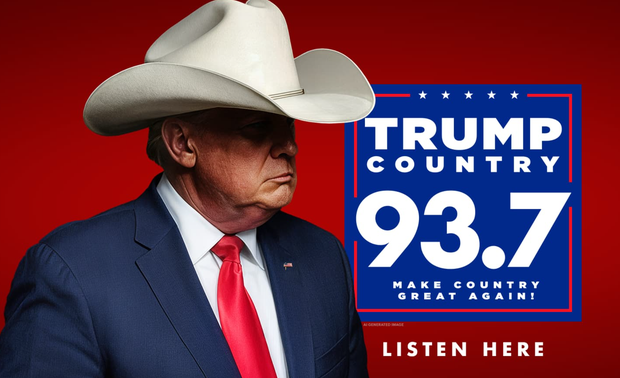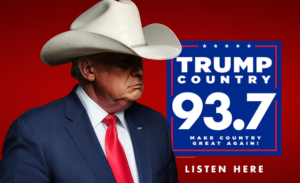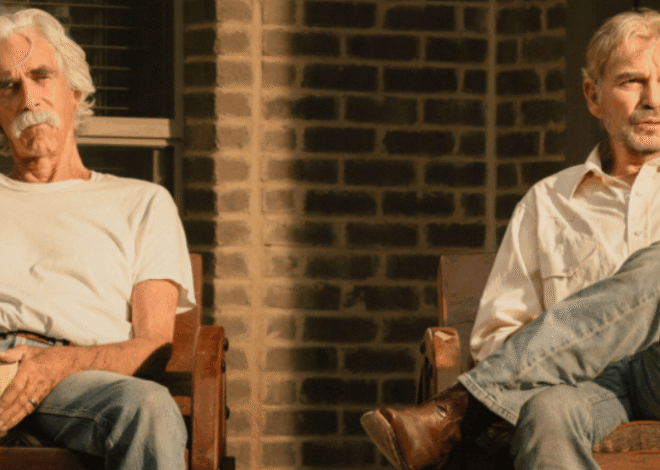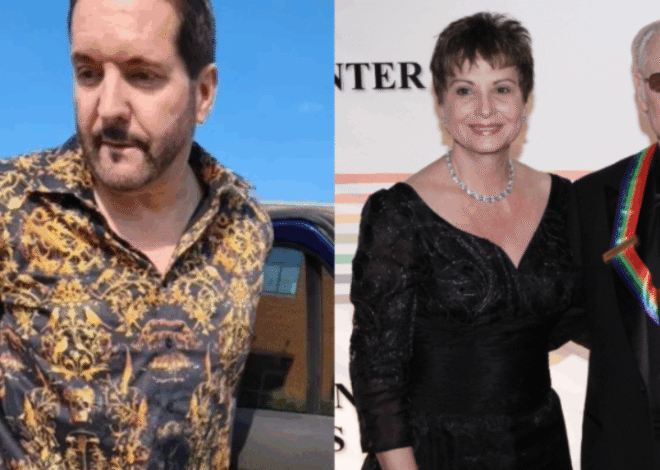
Florida radio station borrows Trump to be its face and name
If you drive past the billboards or scroll too quickly through the website, you might mistake them for a campaign ad. The bold colors, the familiar lettering, and the unmistakable face under a cowboy hat all stand out.
As soon as Donald Trump began his second term as president, a small Fort Myers country radio station seized the moment. On Inauguration Day, WHEL-FM rebranded itself as “Trump Country” 93.7 FM. The station had briefly tested the name in late 2020 before officially embracing it in 2025.

A Logo That Echoes Trump’s Campaign
The station’s logo looks strikingly similar to Trump’s campaign branding. It uses a comparable font, features his signature red tie and flag lapel pin, and even depicts him in a cowboy hat. The branding immediately connects with Trump supporters, especially in Lee County, Florida, where Trump won 64% of the vote in 2024.
Ratings Triple Since Rebrand
Despite Trump’s national approval ratings hovering below 50%, WHEL has thrived locally. According to station executives, ratings among adults 25–54 have tripled since March. By July, Nielsen reported that WHEL was the second highest-rated country station in the Fort Myers area.
Station president and general manager Jim Schwartzel told CBS News:
“We didn’t ask for permission. But I don’t think the president or anybody else would really be upset by it. We looked at it as comedy.”
Politics Meets Promotion
Schwartzel, now running for Congress in Florida, insists the branding was decided before his campaign. His station avoids direct politics but leans heavily on Trump-themed promotions. These include a Trump impersonator voicing ads that mock “woke culture” and push events like the “Deportation a Day” cruise giveaway—marketed with tongue-in-cheek references to the Gulf of Mexico.
The station’s slogan, “Make Country Great Again,” further cements the connection.
Risks and Rewards
Branding a station around one political figure carries risks. Some listeners may be alienated, while others find it entertaining. Yet, in a competitive media landscape, bold moves like this keep traditional radio relevant.
Radio industry analyst Don Tanner, author of No Static at All, explained:
“You have to differentiate in radio. With so much competition from Spotify, Apple, and streaming, unique branding is how stations survive.”
Trump’s Influence on Commercial Media
Trump’s campaign has long struggled to stop the unauthorized use of his image. Still, Schwartzel sees his station as proof of the enduring power of Trump’s brand in American media.
Whether “Trump Country” is a short-term stunt or a long-term format, one thing is clear: it reflects the blending of politics, culture, and entertainment that defines today’s media landscape.

![Inside Kelly Clarkson’s Final Act of Grace for Ex-Husband Brandon Blackstock [Report]](https://countrylivingnation.com/wp-content/uploads/2026/01/kelly-1-660x470.png)

